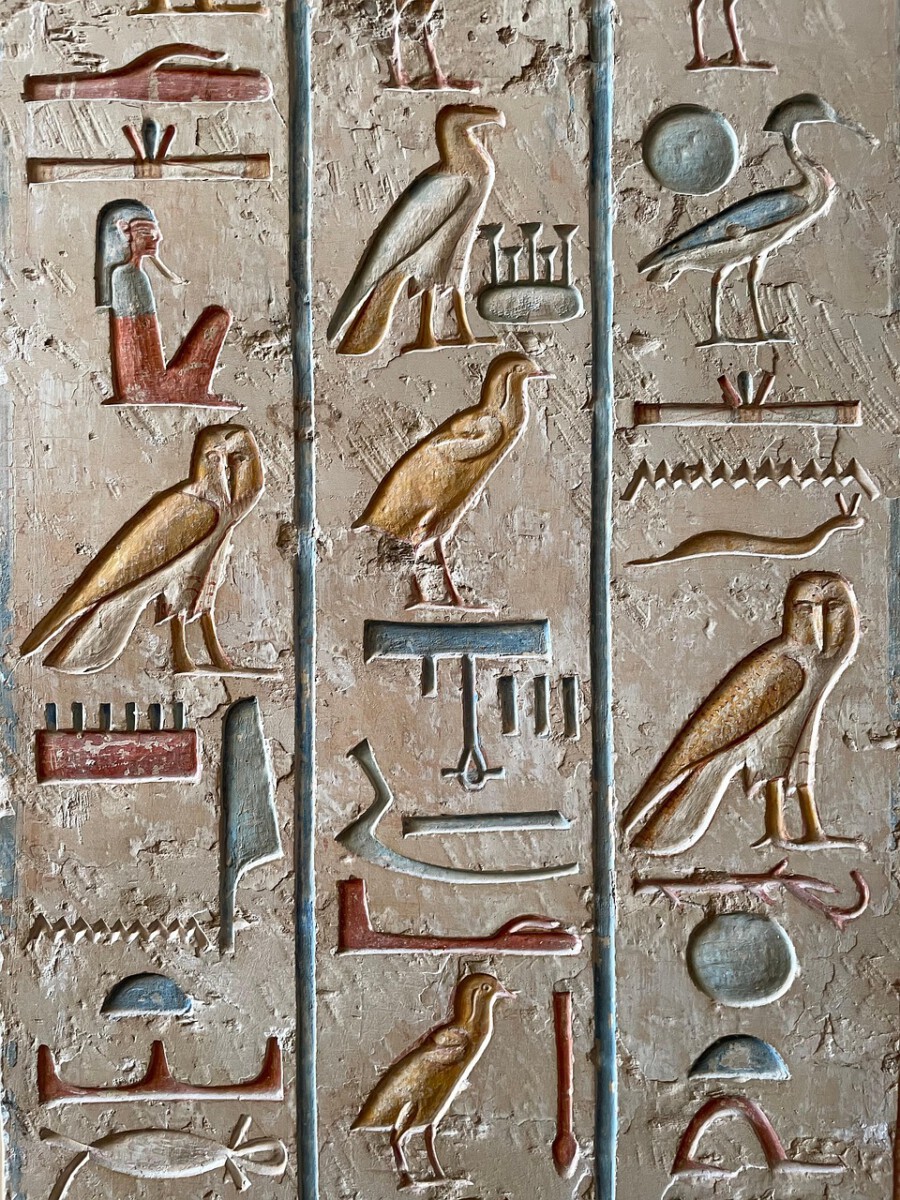Huldah: The Prophetess Who Verified God’s Word

Picture this scenario – the most powerful king in ancient Israel needs divine guidance, and he doesn’t turn to the famous male prophets of his time. Instead, he seeks out a woman. That’s exactly what happened when King Josiah discovered the long-lost Book of the Law and chose Huldah, a female prophet who lived in Jerusalem, despite contemporaries including the famed prophets Jeremiah, Zephaniah, Nahum, and Habakkuk.
What makes Huldah’s story even more remarkable is her profound impact on Scripture itself. According to scholar Scot McKnight, “Huldah is not chosen because no men were available. She is chosen because she is truly exceptional among the prophets.” Her role went beyond simple prophecy – she actually authorized the document that would become the core of Jewish and Christian Scripture. Huldah set in motion the last revival Israel was to see before the Babylonian captivity, proving that God often chooses unexpected people to alter the course of history forever.
Priscilla: The Teacher Who Mentored Great Preachers

When Luke lists Priscilla first before her husband Aquila, it may indicate she was the lead teacher of the two. This wasn’t accidental – in ancient times, the most important person was typically mentioned first. Paul consistently writes about them with Priscilla first because “it was common to list the greatest person first in a list,” though we don’t know exactly what made her great – perhaps business sense, deep understanding of scriptures, or unparalleled leadership.
The most stunning example of Priscilla’s influence comes through her mentoring of Apollos, who became one of the early church’s most gifted speakers. She and her husband Aquila led the church in maintaining theological purity, love for the poor, and mentorship of young, charismatic leaders such Apollos, who were still figuring out how Jesus fit into God’s story of redemption. Some scholars are convinced that Priscilla wrote the mysterious, anonymous letter to the Hebrews found in the New Testament, though the jury’s still out on this theory. Either way, her theological expertise shaped Christianity’s foundational years.
Phoebe: The First Biblical Commentary Writer

Here’s something that might blow your mind – a woman may have been the very first person to read the book of Romans aloud to a church congregation. Most scholars today think Phoebe was Paul’s courier for the letter to the Romans, and since couriers were charged with responsibility to explain their letters, she probably read it aloud and answered questions. This means “Phoebe, to put this graphically, can be seen as the first ‘commentator’ on the letter to the Romans”.
Phoebe is identified as a deacon and is “the only deacon of a first-century church whose name we know,” according to scholars Kevin Madigan and Carolyn Osiek. In addition to being a deaconess, Phoebe is also referred to as a “patron” or “benefactor” of many people, including Paul himself, suggesting she had both the means and desire to support others in the community. This woman didn’t just carry messages – she interpreted them, funded ministries, and literally helped shape how early Christians understood their faith.
Deborah: The Judge Who Led a Nation to Victory

In one of Israel’s darkest periods, when people were literally too scared to walk outside their homes, God raised up an unlikely leader. Deborah led Israel during one of the darkest periods when people were too frightened to even go out in public. She was a judge, a prophetess and helped to lead a successful military campaign against the armies of Jabin, securing peace in Israel for forty years.
Think about this for a moment – in ancient times when women had virtually no political power, Deborah held the highest office in the land. She made legal decisions, settled disputes, and commanded respect from warriors and citizens alike. These biblical women represent not only the kind of bravery to which all Christians are called to in the face of suffering, but represent a uniquely powerful purpose which God has designated for women to achieve God’s plan which would otherwise be impossible. Her story challenges every assumption about gender roles in ancient societies.
Junia: The Female Apostle Hidden in Plain Sight

For centuries, translators literally changed this woman’s gender to avoid confronting an uncomfortable truth. Junia was a prominent leader in the early church, and in Romans 16:7, Paul greets Andronicus and Junia as “outstanding among the apostles.” Some translations mistakenly called Junia a man, but the Greek name is feminine, indicating Junia was a woman.
This wasn’t an accidental mistranslation – it was a deliberate attempt to erase women’s leadership from church history. Paul identifies Junia as not simply an apostle but as one who was prominent among the apostles. The implications are staggering – one of the most influential apostles in the early church was a woman, yet many Christians have never heard her name because later generations couldn’t accept this reality.
Mary Magdalene: The First Preacher of the Resurrection

While the male disciples were hiding behind locked doors in fear, Mary Magdalene became Christianity’s first evangelist. She didn’t just witness the resurrection – she was commissioned by Jesus himself to proclaim it to the other disciples. This makes her, quite literally, the first person to preach the gospel message of Christ’s victory over death.
From Sarah to Mary, women played integral roles in God’s overarching plan for humanity, left lasting legacies and impacts, and their stories continue to inspire and guide believers today. Mary Magdalene’s role as the first witness to the resurrection wasn’t accidental – Jesus specifically chose a woman to be the herald of Christianity’s most important message. In a culture where women’s testimony wasn’t even considered valid in court, Christ turned the social order upside down.
Miriam: The Worship Leader Who Shaped a Nation’s Identity

Miriam played an instrumental role in protecting Moses during infancy and during the years of slavery, her task was to communicate to the people messages of hope and deliverance. She may have taught, encouraged, and corrected the Israelites when they got weary of waiting, and she played a major role at the Exodus.
After the Lord delivered the Israelites by destroying the Egyptian army in the Red Sea, Miriam took the timbrel in her hand; and all the women went out after her with timbrels and with dances praising the Lord in song for His miraculous deliverance. She was inspired by God with the words of the song. This moment created Israel’s first national celebration and established patterns of worship that would influence the nation for millennia. At over ninety years old, Miriam was still leading people in worship and shaping their spiritual understanding.
The Samaritan Woman: The First International Missionary

She came to draw water and left as Christianity’s first cross-cultural evangelist. The woman at the well broke every social barrier of her time – she was a Samaritan talking to a Jew, a woman engaging in theological discussion with a male rabbi, and someone with a questionable past becoming a messenger of hope.
What’s extraordinary is how effectively she evangelized her entire community. While the disciples were concerned about food and social propriety, this unnamed woman was leading her neighbors to faith in Christ. Her testimony was so compelling that many Samaritans believed in Jesus because of her words. She proves that God often chooses the most unlikely people to accomplish the most important missions.
Ruth: The Foreigner Who Changed the Messianic Line

A Moabite widow with no social standing made a decision that literally altered the course of human history. Ruth’s loyalty to her mother-in-law Naomi seemed like a small act of faithfulness, but it placed her directly in the lineage of King David and, ultimately, Jesus Christ. She went from gleaning leftover grain in fields to becoming the great-grandmother of Israel’s greatest king.
Ruth’s story demolishes every argument about ethnic purity and religious exclusivity. Here was a pagan woman from a despised nation who became more faithful than most Israelites and earned a place in the Messianic lineage. Each woman, from Deborah to Ruth, had a unique role and purpose in the biblical narrative. Her inclusion in Jesus’ family tree wasn’t an accident – it was God’s declaration that his kingdom welcomes everyone who chooses faith over fear.
Why Their Stories Matter Today

Biblical women are too often sidelined or caricatured with one-dimensional labels like prostitute, sister, seductress, widow, but these portrayals are sometimes inaccurate and often distract from more important facets of their character – such as their courage, loyalty, creativity, and determination – as well as their vital contribution to God’s redemptive plan. Modern research continues uncovering how these women fundamentally shaped not just biblical history, but the entire trajectory of human civilization.
These women played crucial roles in shaping the course of biblical history, often defying societal norms and expectations to fulfill God’s purposes. Their stories aren’t just inspiring tales from the past – they’re roadmaps for understanding how God works through unexpected people to accomplish extraordinary things. Each woman proved that divine purpose isn’t limited by human prejudice, social status, or cultural expectations. When we truly understand their contributions, we realize that overlooking anyone because of gender, background, or circumstances might mean missing God’s next world-changing move.







